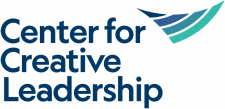- Managing people
Enabling Leaders to Develop their People
David Dinwoodie describes how CCL are helping managers to become more actively involved in the development of their own staff
External providers of executive education have long-struggled with the issue that many of their clients have a strong preference for having their managers and leaders be actively involved in the development of their own staff.
This is not just because it is cheaper to have managers you are already paying do the work, rather than bring in additional expertise to do it – though the cost element should not be ignored either – but because managers can build different relationships with the learners in these initiatives, they bring intimate understanding of the corporate culture and challenges and, above all, because by getting managers to lead the learning is a great way to change their behaviours too.
This does however eat a sizeable chunk from the traditional offer that executive education providers have built their businesses on. It is just one more aspect of the ever-changing context in which management development is evolving.
David Dinwoodie, Vice President, Global Leadership Solutions at Center for Creative Leadership (CCL), in conversation with IEDP recently, says that CCL now provides an increasing number of its corporate clients with bespoke services around the strategy, diagnostics and design of learning initiatives, and then assists the client to do the delivery aspect themselves – or trains up the initial cohort who can then cascade this process through the organization.
………………………………………………………………………………………………………………
Learn more about CCL’s Leadership Solutions HERE
CCL's customized services allow organizations to develop the leadership competencies and culture needed to meet specific challenges and business realities.
………………………………………………………………………………………………………………
“We're coming together with clients and go through almost every process of what leadership development makes sense for their people. Lining-up with the strategy, where the business is going, the different challenges they're facing at different levels and then helping them to design programs, reproduce the material and do train-the-trainer activities with them. And then they're doing the delivery themselves and we do periodic control audits, program updates and more capability development activity with their people.”
Perhaps the surprising thing, given the removal of what one might see as the core activity – the delivery – Dinwoodie is actually supportive of this change of approach. While not having any figures to indicate what the internal cost of delivery is for clients, he does see that for CCL it brings some certain advantages too. “It works well for us, as one of the challenges with organizations like ourselves is scalability of our traditional business globally. I mean the face-to-face delivery or even online delivery. We have to be very mindful of how we deploy our talent around the world at any given time. At the same time, many organizations have excellent in-house faculty that we can partner with to help them meet their training needs.”
“What it is allowing our clients to do is to push the leadership development much further down the organization. So not just focusing on the upper echelons in senior and middle management. Getting fairly straight forward developmental tools in the hands of managers that they can work with their teams and their teams can continue to push it down…. what we can do is help them to deliver effective tools to convey some of the more complex, sophisticated leadership development we're doing with their executives but that can be streamlined into steps they can then push out to their teams and people without any leadership experience at all. Often, they just need to engrain certain things in the culture whether people are managers or not, whether it's feedback or whether it's dealing with conflict or whether it's accountability. These are the sort of things that ideally get pushed to everyone in the organization not just those in senior management positions.”
Dinwoodie says this has become an increasingly important strategic area for CCL “over the last several years we've really seen an uptake in this kind of business and have put quite a bit of resources into developing tools that can be used and shared with leaders at all levels and putting the train-the-trainer materials and packages together.”
The key to making this work, is often when the client is looking to formulate some large-scale culture transformation in the organization, and when CCL can work intensively, at an individual level, with senior executives, particularly at the C-suite level. Through a mixture of proprietary team assessment tools CCL has developed, based on its on-going leadership research work, and mapping of change agents and networking across the organization’s ecosystem, they are able to design initiatives that can cascade through the organization with real impact.
This is coupled with targeted programs such as ‘Better Conversations Every Day’ that provides foundational coaching skills across the entire organization, through a one-day program and associated micro-learning assets, workshop kits, and evaluation tools to help sustain the learning. Dinwoodie says “we go in and teach this program ... do the workshops with the senior leaders, we're teaching people throughout the company to teach this program and then they're rolling it out from top to bottom across the entire organization…this is all about building a culture of feedback and coaching but making it very doable for people on the job and we're seeing very large engagements across all the regions where CCL works – the Americas, EMEA and APAC. Organizations are picking it up and running with it.”
CCL also have a range of ‘Workshop Kits’ that allow staff to self-run workshops on a wide variety of topic areas. Typically, these will include the facilitators guide along with wall posters explaining key elements, and a flash drive with PowerPoint slides and some illustrative video clips and participant workbooks. Armed with this collateral managers feel much more confident in sharing learning and running workshops on their own, says Dinwoodie.
This is all a response to the frenetic pace of change going on in all organizations – and the realization that in order to even just maintain position, they need to keep developing their talent. Dinwoodie reflects that “If they're gonna be successful they have to build the talent of the people and they're hungry for tools to do that. I see executives being still just as hungry to develop themselves but now the realisation is, I may be a CFO, I may be a head of marketing or sales or whatever and my functional development is important but it's almost more important how I develop my talent, and they want to do that more. I think leaders see it more as a core part of their job than they used to.”
………………………………………………………………………………………………………………………..
David Dinwoodie is the Center for Creative Leadership’s Global Director, Individual and Team Leadership Solutions, a role in which he is responsible for CCL’s global portfolio of programs, products and services in Open Enrolment, Custom, Coaching and Assessment Services lines of business. David serves as Senior Faculty for the Leading Strategically program, delivers custom leadership development solutions for corporate clients, and is a member of the Organizational Leadership Solutions Team at CCL.
David brings significant international experience to his role, having held senior management positions with pan-European and global responsibilities in Ernst & Young, BICC General Cable, Planeta de Agostini and Brystol-Myers Squibb.
A top-ranked, global provider of leadership development. By leveraging the power of leadership to drive results that matter most to clients, CCL transforms individual leaders, teams, organizations and society.
ARTICLES YOU MIGHT LIKE
RESEARCH
Despite its detractors, Performance Measurement and Management can be made fit for the future
DEVELOPING LEADERS QUARTERLY MAGAZINE AND WEEKLY BRIEFING EMAILS


































